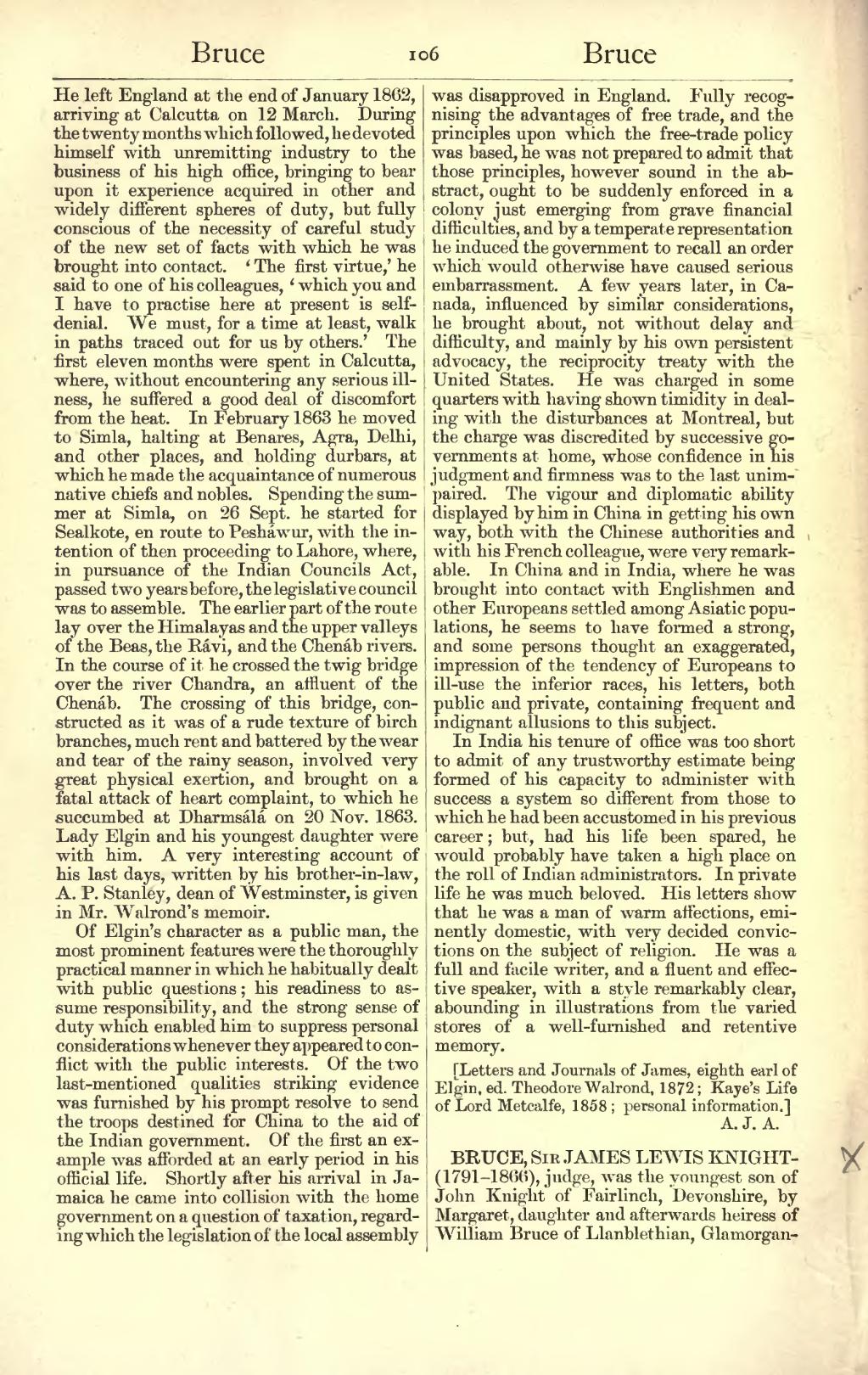He left England at the end of January 1862, arriving at Calcutta on 12 March. During the twenty months which followed, he devoted himself with unremitting industry to the business of his high office, bringing to bear upon it experience acquired in other and widely different spheres of duty, but fully conscious of the necessity of careful study of the new set of facts with which he was brought into contact. ‘The first virtue,’ he said to one of his colleagues, ‘which you and have to practise here at present is self-denial. We must, for a time at least, walk in paths traced out for us by others.’ The first eleven months were spent in Calcutta, where, without encountering any serious illness, he suffered a good deal of discomfort from the heat. In libruary 1863 he moved to Simla, halting at Benares, Agra, Delhi, and other places, and holding durbars, at which he made the acquaintance of numerous native chiefs and nobles. Spending the summer at Simla, on 26 Sept. he started for Sealkote, en route to Pesháwur with the intention of then proceeding to Lahore, where, in pursuance of the Indian Councils Act, passed two years before, the legislative council was to assemble. The earlier art of the route lay over the Himalayas and the upper valleys of the Beas, the Rávi, and the Chenáb rivers. In the course of it he crossed the twig bridge over the river Chandra, an affluent of the Chenáb. The crossing of this bridge, constructed us it was of a rude texture of birch branches, much rent and battered by the wear and tear of the rainy season, involved very great physical exertion, and brought on a fatal attack of heart complaint, to which he succumbed at Dharmsálá on 20 Nov. 1863. Lady Elgin and his youngest daughter were with him. A very interesting account of his last days, written by his brother-in-law, A. P. Stanley, dean of Westminster, is given in Mr. Walrond's memoir.
Of Elgin’s character as a public man, the most prominent features were the thoroughly practical manner in which he habitually dealt with public questions; his readiness to assume responsimility, and the strong sense of duty which enabled him to suppress personal considerations whenever they appeared to conflict with the public interests. Of the two last-mentioned qualities striking evidence was furnished by his prompt resolve to send the troops destined for China to the aid of the Indian government. Of the East an example was affnnled at an early period in his official life. Shortly after his arrival in Jamaica he came into collision with the home government on a question of taxation, regarding which the legislation of the local assembly was disapproved in England. Fully recognising the advantages cf free trade, and the principles upon which the free-trade policy was based, he was not prepared to admit that those principles, however sound in the abstract, ought to be suddenly enforced in a colony just emerging from grave financial difficulties, and by a temperate representation he induced the government to recall an order which would otherwise have caused serious embarrassment. A few years later, in Canada, influenced by similar considerations, he brought about, not without delay and difficulty, and mainly by his own persistent advocacy, the reciprocity treaty with the United States. He was charged in some quarters with having shown timldity in dealing with the disturbances at Montreal, but the charge was discredited by successive governments at home, whose confidence in is judgment and firmness was to the last unimpaired. The vigour and diplomatic ability displayed by him in China in getting his own way, both with the Chinese authorities and with his French colleague, were very remarkable. In China and in India, where he was brought into contact with Englishmen and other Europeans settled among Asiatic populations, he seems to have formed a strong, and some persons thought an exaggerated, impression of the tendency of Europeans to ill-use the inferior races, his letters, both public and private, containing frequent and indignant allusions to this subject.
In India his tenure of office was too short to admit of any trustworthy estimate being formed of his capacity to administer with success a system so different from those to which he had been accustomed in his previous career; but, had his life been spared, he would probably have taken a high place on the roll of Indian administrators. In private life he was much beloved. His letters show that he was a man of warm affections, eminently domestic, with very decided convictions on the subiect of religion. He was a full and facile writer, and a iiucnt and effective speaker, with a style remarkably clear, abounding in illustrations from the varied stores of a well-furnished and retentive memory.
[Letters and Journals of James, eighth earl of Elgin. ed. Theodore Walrond, 1872; Kaye’s Life of Lord Metcalfe, 1858 ; personal information]
BRUCE, Sir JAMES LEWIS KNIGHT- (1791–1866), judge, was the youngest son of John Knight of Fairlinch, Devonshire, by Margaret, daughter and afterwards heiress of William Bruce of Llanblethian, Glamorgan-
